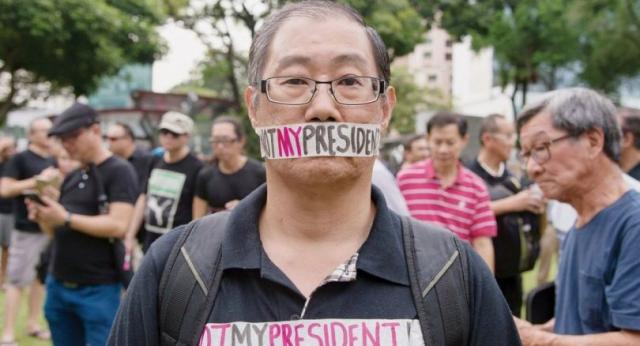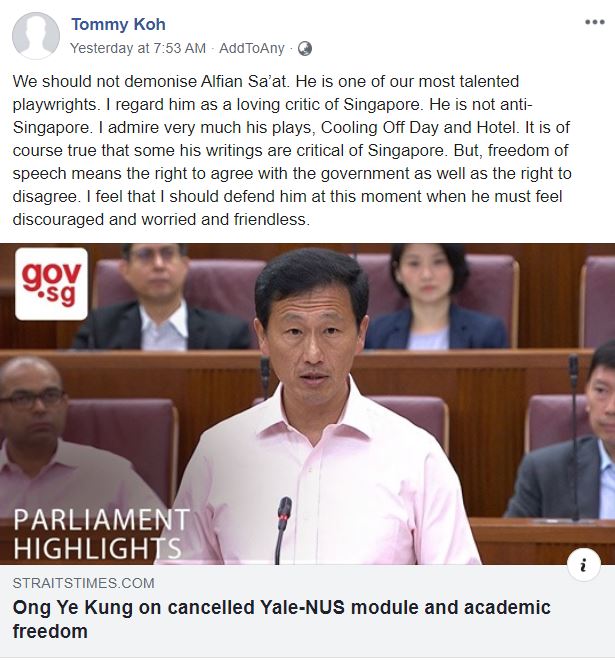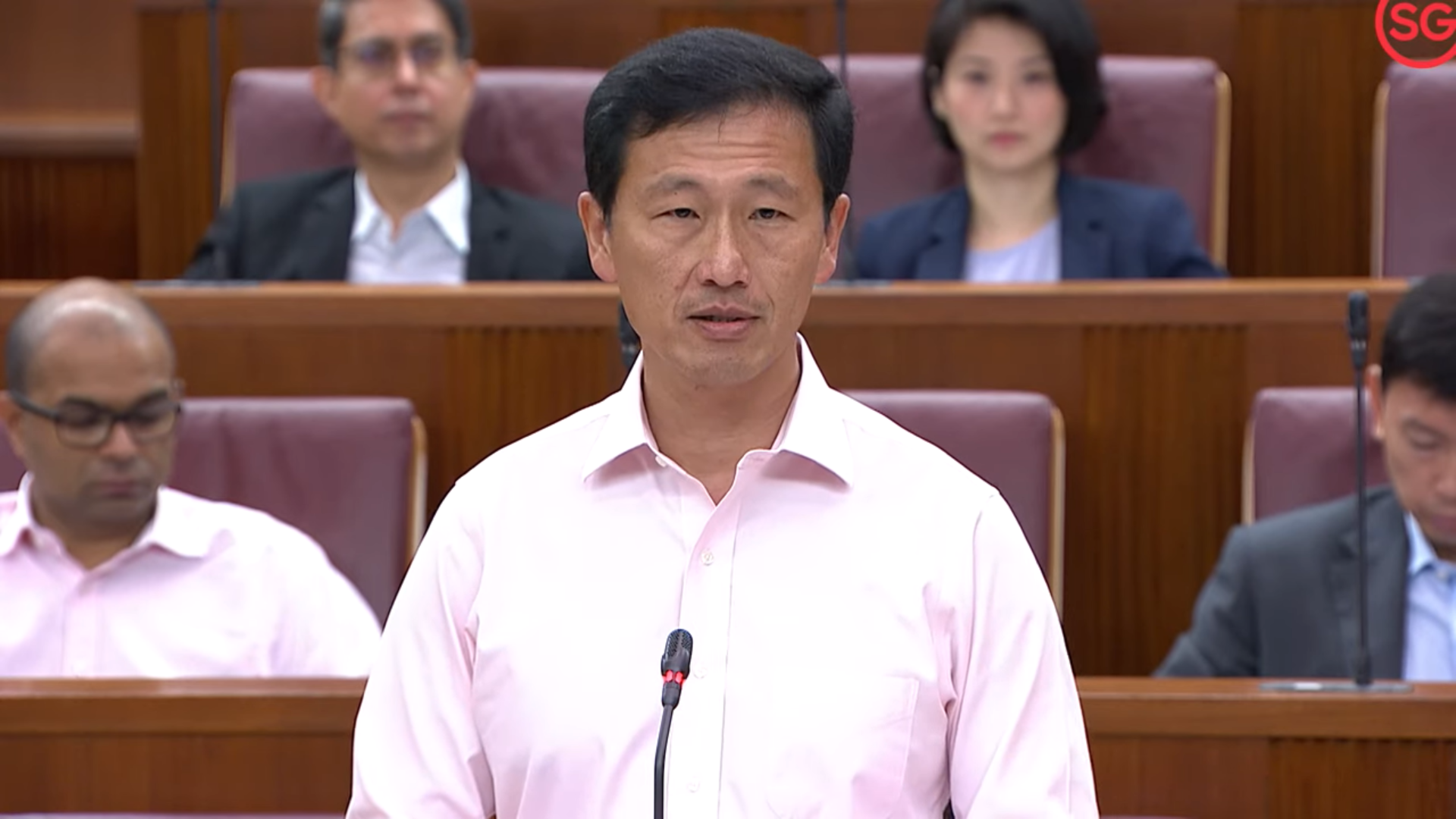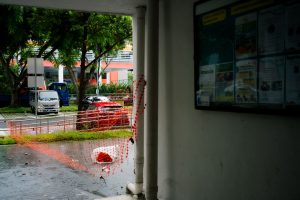It’s perfectly fine to ask if Mr. Alfian Sa’at’s module on dissent is academically ‘rigorous’ enough, or to question if the curriculum has crossed the fine line between education and activism.
To this, Minister Ong Ye Kung says ‘yes’. I think it’s fine. I’m sure we can agree to disagree.
What we should not do, however, is to make spurious allegations in Parliament. We should not be accusing Singaporean citizens of disloyalty, especially when there is little evidence to support such a thesis.
Yet, this is exactly what our Education Minister did on Monday—insinuate, cast aspersions, and sling mud. To give you ‘a flavour of his thinking’, let me take his words out of context and twist them to serve my own polemic:
Speaking on the issue of the Yale-NUS scandal, Mr OYK went from explaining MOE’s guiding principles to a series of personal attacks on Alfian Sa’at’s character.
First, he cited a poem from 1998 titled ‘Singapore, You Are Not My Country’, taking a few lines out of their original context (“And how can you call yourself a country, you terrible hallucination of highways and cranes and condominiums ten minutes’ drive from the MRT”) to underscore his point that—uh—actually I’m not sure what the point is.
He then recounted a 2013 case where Mr. Alfian apologised to Malaysians on behalf of the Singaporean government for arresting protestors. In more recent years, he has been found guilty of ‘praising’ the new Malaysia and ‘juxtaposing’ it favourably against Singapore.

What is the point of this detour into a playwright’s past? What is the Minister is trying to suggest in this passage? (25 points)
I’m not as well-versed in literary criticism as Mr OYK, but I think the Minister is implying that Mr Alfian Sa’at is not a loyal Singaporean. He does not love Singaporean symbols like the National Anthem, or conveniently-located Condos, hence he does not love Singapore, and should not be allowed anywhere near our young, impressionable undergraduates—who cannot think for themselves despite 15 years in one of the world’s best education systems.
But what is the point of all this? Not only are these tidbits entirely irrelevant to the Yale-NUS case, they don’t even prove anything against him. They certainly do not show that he is a ‘political activist’, even under the most liberal definition of the term.
If Alfian Sa’at is some kind of anti-Singaporean deviant for writing ‘Singapore, You Are Not My Country’, then the same could be said of every person who wrote ‘Halimah, You Are #NotMyPresident’ during the last presidential “election”. Criticising a particular vision of Singapore is not the same as being anti-Singapore, and the distinction is an important one.
As Dr. Tommy Koh has eloquently argued: “Singapore will languish if our lovers are uncritical and our critics are unloving. What Singapore needs is not sycophants but loving critics and critical lovers.”
As for the crime of making ‘unfavourable juxtapositions’, it is so absurd I don’t know what to say. If your love of country does not come with misgivings and doubts, then it’s not love at all, but blindness. If unfavourable comparisons make a person ‘suspect’ in the government’s eyes, then the only good Singaporean left is Nas Daily.

We could dismiss these comments as garden-variety political mudslinging—if only they were made in isolation.
Over the past year, our politicians seem to have picked up a nasty habit of equating criticism with betrayal, and finding traitors/foreign agents hiding under every table. Despite all the hand-wringing about ‘foreign influence’, our government seemed more than happy to adopt a favorite tactic of Xi and Trump—using Nationalism/patriotism to discredit dissent.
On 21st of September, MP Goh Choon Kang wrote a nonsensical ST op-ed suggesting that the Yale-NUS module is a front for CIA-instigated Colour Revolutions.
Although he did not have any facts to back up his claim, it did not stop the former journalist from making half-baked assertions under the guise of rhetorical questions like “Are we encouraging students to follow in their footsteps en masse?” or “Do they think Singapore needs a Colour Revolution?”
Last year, during the whole PJ Thum-Mahathir meeting, MP Seah Kian Peng took a similar stance by declaring that the activists were working against Singapore. In a Facebook post, he wrote: ‘it appears quite clear to me that PJ Thum does not mean Singapore well’.
Apropos of nothing, he then quoted former Minister EW Barker by saying, “The seductive blandishments of foreign agents must not be allowed to succeed.”
If there’s any evidence that someone is working against Singapore’s interests at the behest of a foreign government, they should be arrested, charged, and tossed into a tiny cell. We certainly do not lack the resources or the legal tools to do so. At the very least, the authorities should present their findings to the public.
But if there is no proof, then perhaps we should refrain from such armchair McCarthyism. These ‘hints’ and ‘allusions’ are not just regrettable, they’re downright dangerous to political discourse. While it’s perfectly fine to criticise the political views you detest, a line is crossed when you accuse individuals of ‘un-Singaporean activities’ and of working for the CIA. This sort of divisive bullshit is barely one step above Donald Trump’s allegation that Barack Obama was not born in the United States.

Earlier in his speech, Minister Ong Ye Kung warned that Singapore has a very small ‘margin of error’. In his view, we are too small and too vulnerable to survive HK-style demonstrations, or ‘the political confusion in the UK’.
Yet our government’s own rhetoric mirrors the language used by leading Brexiteer Boris Johnson and some of the far-right extremists who are his most ardent supporters. In recent times, they’ve also characterised their political opponents as ‘traitors’ and accused them of ‘taking orders from foreign powers’.
Granted, our politicians are not so forthright in expressing their views, but the logic they employ is hardly dissimilar.
First, a difference of opinion. Second, a quick and slippery descent down a rabbit-hole of ‘foreign interference’, ‘unpatriotic behavior’, and other recriminations.
Why are our politicians learning from Boris and Trump? Is this what they really want for Singapore?
Should we try to avoid insinuations like this sentence?
For his part, our Law and Home Affairs Minister Shanmugam has argued that such accusations are allowed. In reply to parliamentary questions from NMP Anthea Ong, he said: “I assume you’re not suggesting that we prevent people from expressing their views on whether some actions are patriotic or unpatriotic”. Since that is his position, I certainly hope that he doesn’t mind me exercising my freedom of speech by condemning these ‘patriotic’ witch-hunts. Agree or disagree, stop implying that Singaporeans are somehow disloyal for expressing a different point of view.






